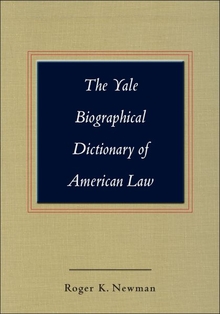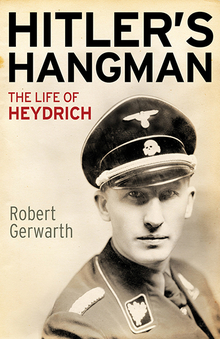Garibaldi
WARNING
You are viewing an older version of the Yalebooks website. Please visit out new website with more updated information and a better user experience: https://www.yalebooks.com
Invention of a Hero
Lucy Riall
Out of Print
The first sustained analysis of the cult of the legendary Italian hero
Giuseppe Garibaldi, the Italian revolutionary leader and popular hero, was among the best-known figures of the nineteenth century. This book seeks to examine his life and the making of his cult, to assess its impact, and understand its surprising success. For thirty years Garibaldi was involved in every combative event in Italy. His greatest moment came in 1860, when he defended a revolution in Sicily and provoked the collapse of the Bourbon monarchy, the overthrow of papal power in central Italy, and the creation of the Italian nation state. It made him a global icon, representing strength, bravery, manliness, saintliness, and a spirit of adventure. Handsome, flamboyant, and sexually attractive, he was worshiped in life and became a cult figure after his death in 1882. Lucy Riall shows that the emerging cult of Garibaldi was initially conceived by revolutionaries intent on overthrowing the status quo, that it was also the result of a collaborative effort involving writers, artists, actors, and publishers, and that it became genuinely and enduringly popular among a broad public. The book demonstrates that Garibaldi played an integral part in fashioning and promoting himself as a new kind of “charismatic” political hero. It analyzes the way the Garibaldi myth has been harnessed both to legitimize and to challenge national political structures. And it identifies elements of Garibaldi’s political style appropriated by political leaders around the world, including Mussolini and Che Guevara.
Giuseppe Garibaldi, the Italian revolutionary leader and popular hero, was among the best-known figures of the nineteenth century. This book seeks to examine his life and the making of his cult, to assess its impact, and understand its surprising success. For thirty years Garibaldi was involved in every combative event in Italy. His greatest moment came in 1860, when he defended a revolution in Sicily and provoked the collapse of the Bourbon monarchy, the overthrow of papal power in central Italy, and the creation of the Italian nation state. It made him a global icon, representing strength, bravery, manliness, saintliness, and a spirit of adventure. Handsome, flamboyant, and sexually attractive, he was worshiped in life and became a cult figure after his death in 1882. Lucy Riall shows that the emerging cult of Garibaldi was initially conceived by revolutionaries intent on overthrowing the status quo, that it was also the result of a collaborative effort involving writers, artists, actors, and publishers, and that it became genuinely and enduringly popular among a broad public. The book demonstrates that Garibaldi played an integral part in fashioning and promoting himself as a new kind of “charismatic” political hero. It analyzes the way the Garibaldi myth has been harnessed both to legitimize and to challenge national political structures. And it identifies elements of Garibaldi’s political style appropriated by political leaders around the world, including Mussolini and Che Guevara.
Lucy Riall is professor of modern European history at Birkbeck College, University of London. Her publications include The Italian Risorgimento: State, Society and National Unification and Sicily and the Unification of Italy: Liberal Policy and Local Power (1859-66).
"For the 19th-century European history buff or the revolutionary hero completist, this is a useful and illuminating read."—Publishers Weekly
"This book is meticulously researched and its argument well presented."—Library Journal
"Armed with an exuberance and energy worthy of a true Garibaldino (even managing to date the appearance of the eponymous biscuit and to trace Nottingham Forest's football strip to the general's red shirt), Lucy Riall gives us a book which is about rather more than myriad fantasies projected onto the most famous of Italy's nation-builders, a work with inevitable resonances for our own age of celebrity chasing and willing enslavement to the media. Her historical argument is made more compelling by a lucid, athlectic and continuously engaging prose style. We are only a month or so into 2007, but i have no hesitation in naming this among my books of the year."---Jonathan Keates, Literary Review
"In Garibaldi, Riall painstakingly charts the construction and metamorphosis of his reputation. . . . Riall's material is fascinating and her analysis of it subtle and acute. . . . This is a comprehensive historiography of a 19th-century hero. It is also a timely study of the way wish-fulfillment fantasy, political reality, and popular entertainment interact."—Lucy Hughes-Hallett, New York Sun
"How and why Garibaldi acquired such a status is the subject of Lucy Riall's absorbing and scholarly new book."---David Gilmour, The Spectator
"This is an important new contribution to a neglected aspect of European history."---The Good Book Guide
"An absorbing cultural study...this is very much a specialist book. Yet it has plenty to interest the layman, and Riall is to be congratulated on her narrative verve."---Ian Thompson, The Sunday Times
"Lucy Riall deftly unpicks the elements that went to make up the fascination Garibaldi exerted over such vast numbers of people...a compelling read, full of fascinating and hilarious new material."---Adam Zamoyski, The Sunday Telegraph
"Garibaldi: Invention of a Hero is a brilliantly conceived and executed study."---John Dickie, The Daily Telegraph
"...fascinating...an exceptionally vivid picture of an extraordinary revolutionary...[a] riveting piece of research..."---Geoffrey Goodman, Tribute
"The story of Garibaldi is gripping stuff: bravery, patriotism and adventure, with the glamorous revolutionary fighting guerrilla wars in two continents and taking his thousand volunteers across Italy to save Sicily for the unified nation. Riall takes the story further, showing how the myth of the revolutionary hero, appropriated by the likes of Mussolini and Che Guevara, was manufactured using the new technologies of mass communication to radicalise the public." --- Jad Adams, BBC History Magazine
"Riall explains the intricacies of Italian unification, and marshals successfully the enormous amount of Garibaldian literature produced all over the world from the 1840s onwards." - Filipe Ribeiro de Meneses, Irish Times
"Lucy Riall . . . has written many monographs on the topic of the unification of Italy. Garibaldi is very much her masterpiece. . . . In prose that is remarkably jargon free, and with a stupendous amount of documentation, Riall traces the manner in which the unifiers of Italy used the newly emergent press to propagate the image of Garibaldi the Hero. . . . A tour de force on the creation of the Garibaldi myth."—Diane N. Labrosse, Montreal Gazette
“Innovative, exciting, masterful. . . . A substantial contribution to the discussion of nationalism.”—New Republic
"Thoroughly documented and rich in analysis. . . . Recommended."—Choice
"The most original scholarly biography of the Italian hero."—Eugenio F. Biagini, Books & Culture
"Excellent. . . . Will be [of] interest to students of the Risorgimento, the hero in history, and the phenomenon of the romantic revolutionary."—A. A. Nofi, The New York Military Affairs Symposium Review
ISBN: 9780300112122
Publication Date: June 22, 2007
Publication Date: June 22, 2007
496 pages, 234 x 156
33 b/w illus.
33 b/w illus.








